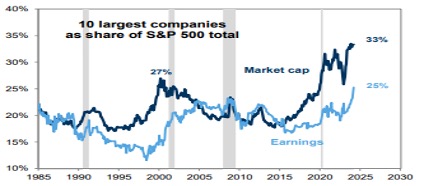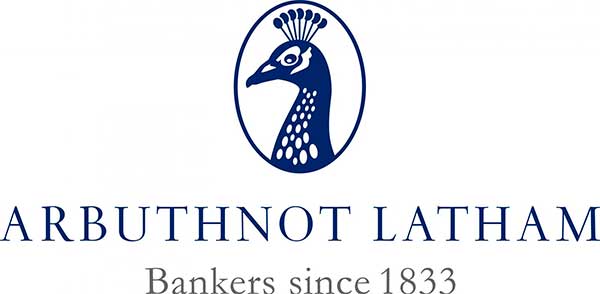This month:
Expert investment views:
One wealth manager reminds investors that one day Eastern European equities may well be in vogue again
A case is made for UK equities as a buy and hold play, given attractive valuations on a variety of metrics
Investors are urged to consider direct allocations to UK gilts following the Spring Budget’s developments
Featuring this month’s experts:



1. Emerging Europe, unloved and unappreciated
I fondly remember trading, or at least buying and holding, the iShares Eastern Europe (IEER as was) in the early noughties. From my first day at work in the finance industry in September 2003, when the index was priced at 103, that market more than tripled to the heady heights of 382 at the end of 2007. Post financial crisis, the index never really regained its mojo, and at the time that the iShares ETF was liquidated post the Russian invasion in 2022 the index was priced at just 22.
After years of stagnation, there are some signs of change. On Monday 16 October 2023, the Polish Law and Justice party were voted out and Donald Tusk’s three-party coalition took over, promising to reverse many of the anti-libertarian “reforms” of the previous era. Polish stocks have started to move forward, and the self-same MSCI Eastern European index now stands at a mighty 45.
All things come around with time; I have no doubt that one day Eastern Europe will be in vogue again… until then, timing is everything
There are very few ways of playing this theme, and precious little research (or interest) out there. The iShares Poland is one, albeit dominated by banks (40% of the index). There are a couple of funds still operating, but the vast majority have closed down or repurposed into other markets.
All things come around with time; I have no doubt that one day Eastern Europe will be in vogue again… until then, timing is everything.

Edward Allen
Private Clients Investment Director at Tyndall Investment Management
2. UK Equities: Down but Not Out
As is commonly understood, the UK has been a humdrum venue for the humble equity investor. UK shares have underperformed global peers by c.35% since pre-COVID times and trade on just 11x forecast earningsi.
But why has the UK suffered?
The UK market is skewed to value-style companies. These are businesses which appear cheap in intrinsic, or relative terms (i.e versus history, market, or peers). Key examples include Financials, Oils and Miners. But in an era dominated by US tech, such companies look fusty and are shunned.
Further, the UK has been at the sharp end of something called de-equitisation. In the last two decades, changes to accounting rules and regulation have made it difficult for institutions to maintain UK exposureii. Lower demand has suppressed valuations, discouraged IPOs and encouraged both M&A and UK businesses to list abroad. The upshot? Fewer UK public companiesiii.
At 11x forward earnings, the UK trades at a 40% discount to global peers. It also offers a 4.4% forecast dividend yield that comfortably exceeds comparators
Lastly, the UK carries a whiff of political dysfunction. Since 2010 there have been four general elections (five including the next), a Scottish independence vote and the Brexit referendum. Instability of this kind is a check on growth and a red flag for global investors.
But is anything being done? Chancellor Hunt has made a welcome start with the British ISA. Notwithstanding numerous gripesiv, a £5000 extension of the ISA allowance may stoke demand for UK shares. There is also a debate about scrapping stamp duty reserve tax and the fillip this might give to UK market activityv. Lastly, enhanced disclosure requirements for UK Pension Funds could nudge them towards a fuller UK weightingvi. Clearly, politicians are alive to the problem.
What might an investor do? We can back UK equities and bide our time knowing that we’re making a long-term commitment to an attractively priced market. At 11x forward earnings, the UK trades at a 40% discount to global peers. It also offers a 4.4% forecast dividend yield that comfortably exceeds comparatorsvii.

For these reasons, our personal portfolios are overweight UK equites. Two great examples from our best ideas list are the Fidelity UK Smaller Companies Fund and the Man GLG Income Fund.
Fidelity’s offering has a bias to small- and mid-cap value stocks. Over 40% of the portfolio is invested in basic materials, financials, real estate and consumer cyclicals. Relative to market, the portfolio looks cheap on multiples of earnings, sales and cashflow. Company-specific risk is diversified by breadth of holding and just 20.6% assets is invested in the top ten. Performance is strong over longer horizons and speaks of management’s pedigree.
Man’s focus is on larger companies, with half of the portfolio invested in FTSE 100 stocks. The fund is materially overweight UK financials, illustrating the emphasis on value-style income plays. The portfolio offers an attractive 5.25% yield which comfortably exceeds benchmark. Performance is ahead of peer group across all measurement periods, emphasising the team’s credentials.
i JPM, Equity Strategy: March Chartbook, 4/3/24
ii See FT, The Logic of the de-equitisation trade, 9/8/23; and Pensions Age, Labour to undertake pensions and retirement review…, 31/1/24
iii Telegraph, The London stock market’s decline is starting to look terminal, 8/2/24
iv See The Times, Why backing British comes at a cost, 7/3/24; and FT, The UK ISA announcement: pretty much meaningless, 6/3/24
iv See The Times, Why backing British comes at a cost, 7/3/24; and FT, The UK ISA announcement: pretty much meaningless, 6/3/24
v Peel Hunt, Stamp Out Stamp Duty, 12/2/24
vi See The Times, Pension Funds to be forced to disclose what they invest in the UK, 2/3/24; and FTAdviser, Pension Funds to disclose level of UK investment under reforms, 4/3/24
vii JPM
viii Goldman Sachs, US Equity Views: 100 years of US equity market concentration and momentum, 7/3/24

Paul Surguy
Head of Investment Management at Kingswood Group

Top Tip

Lee Goggin
Co-Founder
3. Investor takeaways from the Spring Budget
- National Insurance cuts: The expected reduction in the main National Insurance (NI) rate from 10% to 8% benefits 27 million employees and two million self-employed individuals, providing an average annual tax cut of £900 and £650, respectively.
- British ISA reforms: Introducing ISA reforms, a new British ISA allows an extra £5,000 annual investment in UK assets with tax advantages, contributing 0.2% to the UK market's aggregate value.
- Pension fund reforms: Defined Contribution and local government pension funds will disclose their international and UK investments publicly, aiming to stimulate UK stock market investment. Regulatory bodies gain expanded authority to ensure better value from Defined Contribution pension schemes.
What this means for investors:
Investors will be eagerly awaiting the outcome of HM treasury consultation on the new British ISA. It is expected that further details of this new incentive will follow the next election.
With the frozen allowances on income and interest thresholds, investors may wish to consider direct allocations to gilts. They continue to have favourable taxation benefits versus traditional savings accounts or ETFs equivalents
Away from UK equities, the environment for UK government debt remains constructive. Given that additional inflation progress is expected, with economic growth remaining benign, the market consensus is for the Bank of England to cut interest rates this year. With the frozen allowances on income and interest thresholds, investors may wish to consider direct allocations to gilts. They continue to have favourable taxation benefits versus traditional savings accounts or ETFs equivalents.

Colin MacKenzie
Director, Investment Management at Arbuthnot Latham & Co., Limited
Important information
The investment strategy and financial planning explanations of this piece are for informational purposes only, may represent only one view, and are not intended in any way as financial or investment advice. Any comment on specific securities should not be interpreted as investment research or advice, solicitation or recommendations to buy or sell a particular security.
We always advise consultation with a professional before making any investment and financial planning decisions.
Always remember that investing involves risk and the value of investments may fall as well as rise. Past performance should not be seen as a guarantee of future returns.



